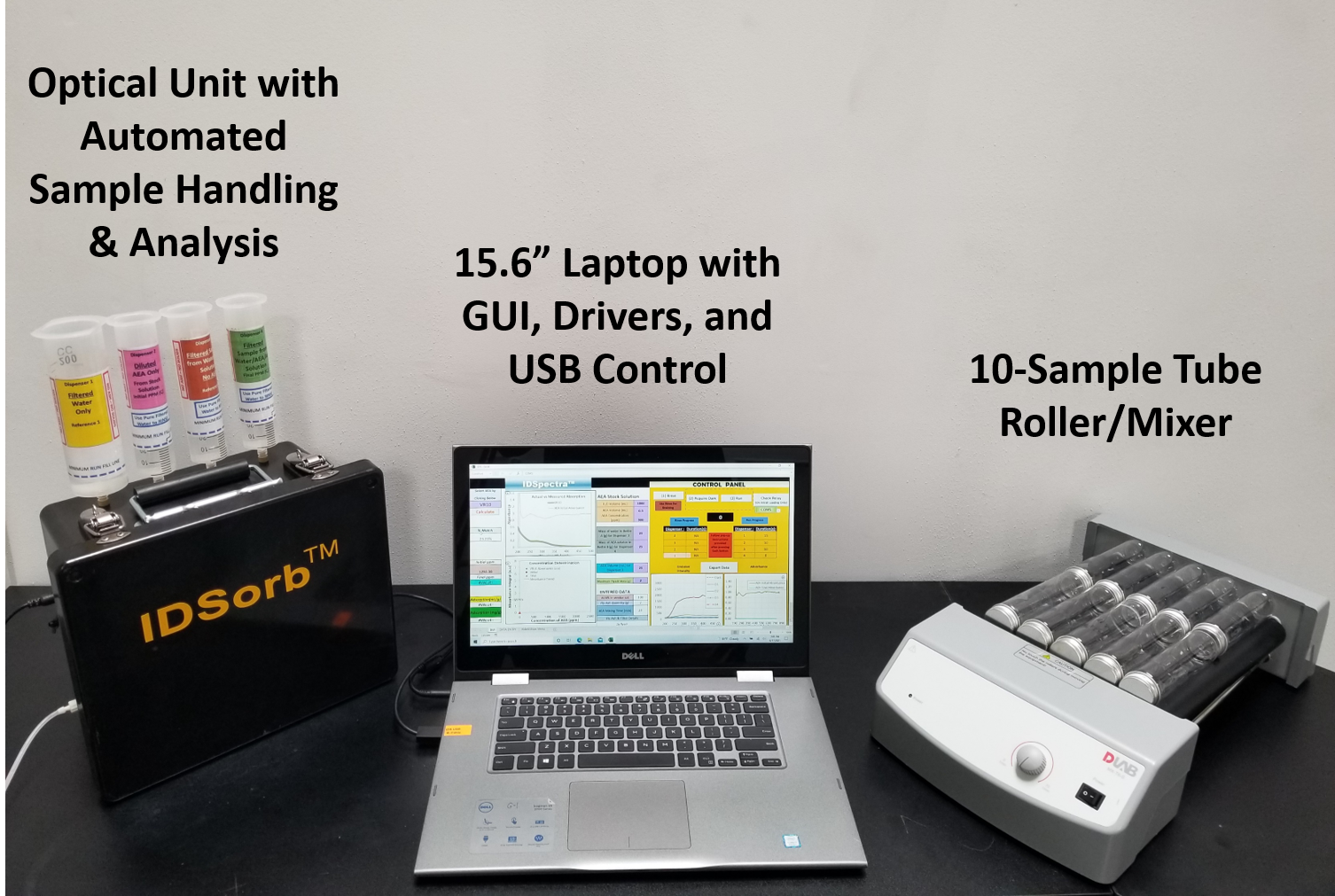Instrument for Fly Ash Analysis & AEA Adsorption Capacity Measurement
The methods and descriptions presented here are intended for fly ash analysis but can also be used for testing the properties of most solid materials.
Link to the IDSorbTM datasheet : IDSorbDatasheet
Examples of Adsorption Data & Graphs Generated using IDS : Sample Data
IDSorbTM (from the IDSpectraTM product line) can be used to accurately determine the levels of adsorption (or desorption) from a wide range of materials. While it is specifically designed to be used with Fly Ash & commercial Air Entrainment Agents (AEAs), it can be expanded and customized to be used with any adsorbate and adsorbent system. For concrete-related applications, the IDS instrument can be effectively used to (1) compare the properties of different fly ash types used in concrete; (2) identify or develop optimal air entraining agents (AEAs); and (3) determine the impact of the flyash and cement mixing process on AEA adsorption and air bubble formation.
- Fly Ash Adsorption Capacity
- Product Quality Control for Concrete Manufacturing
- Material Cost Reduction and Usage Optimization
- Works with a Wide Range of Air Entrainment Agents (AEAs) and Admixtures
- Comparison of Commercial AEAs & Analysis of Precipitation Problems
- Surfactant & Solute Identification
- Concentration Measurements
- Miscellaneous Research
ANALYSIS CAPABILITIES
Adsorption by Broadband Spectroscopy
- Determination of flyash adsorption of AEAs and other admixtures
- Identification & Comparison of Commercial AEAs with Database
- Generation of UV/Vis Absorbance Spectra
Concentration Determination
- Determination of concentration from absorbance (Beer’s Law)
- Measurement of unknown concentrations using calibration data
- Detection sensitivity in the parts per million (ppm) range
Adsorption Analysis
- Determination of AEA adsorption capacity of fly ash powders
- Generation of AEA adsorption isotherms
- General analysis of adsorbate/adsorbent relationships

Main Components used with the IDSorb Instrument for the analysis of fly ash adsorption capacity with various commercial air-entraining agents (AEAs)